
product-manager-prompts
A repository of Generative AI prompts for product managers using agents such as ChatGPT, Claude, & Gemini
Stars: 546
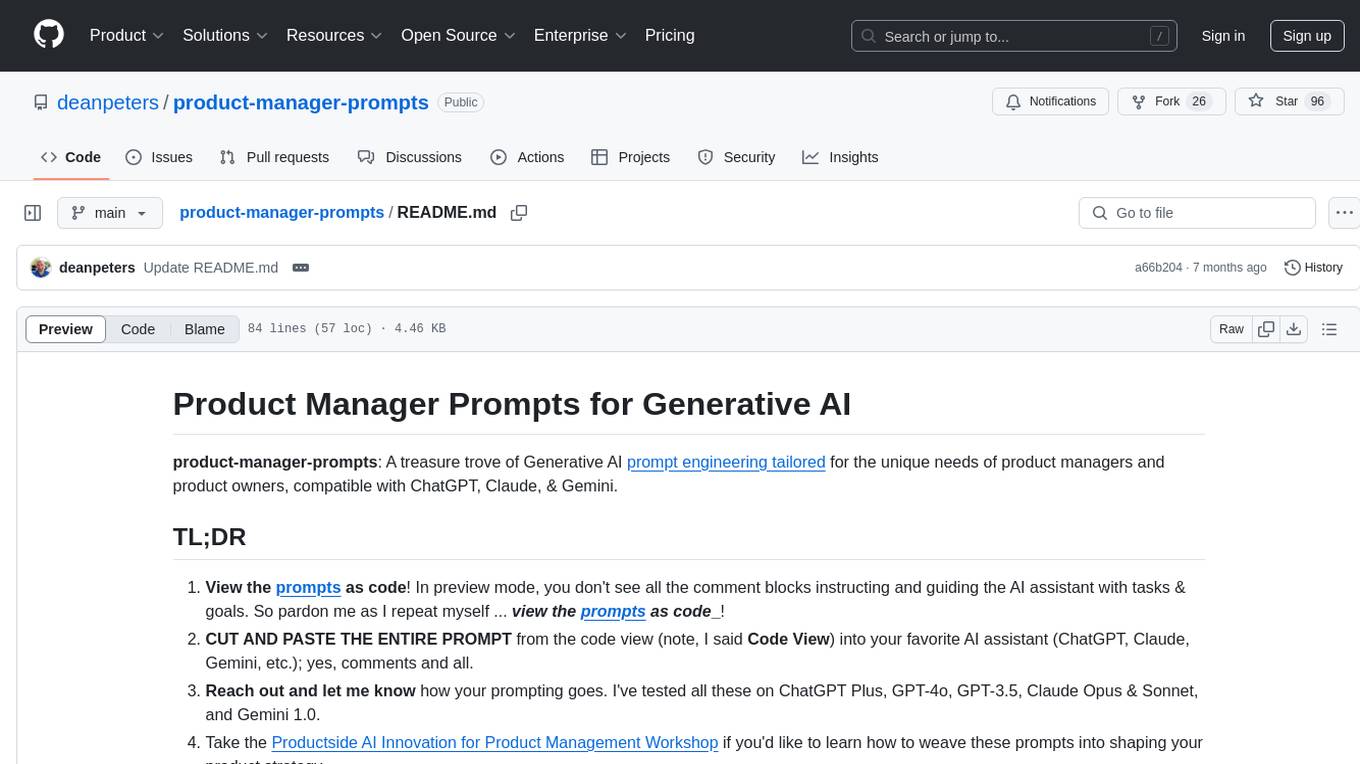
A treasure trove of Generative AI prompt engineering tailored for product managers and product owners. It provides prompts for completing tasks, exploring ideas, conducting research, facilitating communication, and jumpstarting templates. Join the community to enrich this collection with insights, prompts, synthetic data, and examples, making it an indispensable resource for product management.
README:
Practical AI tools that actually help with both the strategic thinking and daily execution of product management
If you're drowning in stakeholder requests, seeking to scaffold strategies, struggling to write decent user stories, or just trying to make sense of your roadmap before it becomes roadkill, these prompts can help. They work in ChatGPT, Claude, Gemini, and pretty much any AI assistant you can copy-paste into.
Think of this as your AI-assisted toolkit for getting real PM work done faster and better while building your strategic thinking capabilities.
(09Feb26 - and if you're looking to update your Agent's skills, head on over to my recently pubilshd, Product Manager Skills repo.)
- Go to any .md file in the /prompts/ folder
- Click "Raw" or "Code View" (not the pretty preview)
- Copy the entire thing - yes, including all those comment blocks that start with <!--
- Open ChatGPT, Claude, Gemini, whatever you use
- Paste the whole prompt in there, as-is
- The AI will ask you questions to understand your specific situation
- Some of the prompts will engage the AI to guideyou through a conversation, not just dump a template on you
- The comments teach the AI how to be helpful specifically for product managers
- You can refine and adjust as you go
Try this first: Start with Jobs-to-be-Done if you're trying to understand your customers better, or User Story Template if you need to write better user stories.
Here's the thing about working with AI: most people either treat it like Google on steroids (ask a question, get an answer) or like a magic template machine (fill in blanks, get output). Neither approach gets you very far with complex product management work.
These prompts work differently. They create conversations with AI where:
- You stay in control - AI asks questions, you make the strategic decisions
- Context builds gradually - Instead of overwhelming you with forms, AI learns about your situation step by step
- Framework thinking - The prompts use proven PM methodologies like Jobs-to-be-Done, Value Proposition Canvas, etc.
- Quality control built in - The AI knows when to ask for missing information
- Start by using existing prompts for your daily work
- Learn to customize them for your specific company or industry
- Eventually build your own using the patterns you've learned
- Help others by sharing what works
This isn't about replacing your PM judgment with AI. It's about having AI help you think through complex problems more systematically.
/prompts/ - The main collection. User stories, positioning statements, customer research, competitive analysis - the bread and butter PM work.
/prompt-generators/ - Tools that help you build your own prompts. Think of these as templates for making templates.
/storytelling/ - Help with explaining complex product concepts through stories, visuals, and metaphors. Great for stakeholder presentations.
/resumes-resignations-reactions/ - A little therapeutic humor for dealing with workplace dysfunction. Sometimes you need to laugh to keep from crying.
/vibes/ - Experimental stuff to provide some guardrails and guidance to vibe coding. Advanced AI workflows that might be useful if you're comfortable with more cutting-edge approaches.
/skeletons/ - For people who want to understand how prompts actually work under the hood. Reverse engineering and analysis tools.
If you want to customize these prompts or contribute your own, you can clone this repository:
git clone https://github.com/deanpeters/product-manager-prompts.git
cd product-manager-promptsThis gives you local copies to modify without worrying about breaking anything, plus it's easier to search through everything.
Here's what most people miss when they first find this repository: GitHub shows you a "pretty" preview of files by default, but that preview hides the most important parts.
Every prompt has two layers:
- The visible part - What the AI executes
- The comment blocks - The teaching layer that shows you WHY it works
When you click on any .md file:
- Don't use the preview (it looks nice but hides the good stuff)
- Click "Raw" or "Code View" to see everything
- Copy ALL of it, including the parts that start with <!--
<!--
## Description: Why this prompt works for PMs
## Usage Note: What context you need before starting
## Instructions: How the AI should guide the conversation
## Attribution: Where this methodology comes from
-->These comments are invisible to the AI when you paste the prompt, but they teach YOU how to work better with AI. Think of them as the instructor's notes that come with the lesson plan.
- You learn while doing - Each prompt teaches you something about AI collaboration
- You can customize intelligently - Understanding why something works helps you adapt it
- You avoid common mistakes - The comments warn you about pitfalls
- You build expertise - Over time, you'll understand how to create your own prompts
Teaching others is how we all get better at this.
I believe the best way to improve at product management in the AI era is by sharing what works (and what doesn't) and learning from each other. Your experience matters, whether you're just starting with AI or you've been experimenting for years.
If you're new to AI:
- Try the prompts and share what worked or didn't work for your situation
- Ask questions when instructions aren't clear
- Suggest better examples based on your industry
If you're getting comfortable:
- Customize prompts for your specific context and share the variations
- Create versions that work better for your team structure or company size
- Improve the teaching comments based on what you learned
If you're advanced:
- Build new prompt generators using these patterns
- Help analyze what makes some prompts more effective than others
- Share novel approaches you've developed
First, check out our SUBMISSIONS-GUIDE.md for complete details on our vision, standards, and process.
-
Focus on helping others learn
- Include comments that explain your thinking
- Show why you made specific choices
- Help people understand your approach
-
Test your stuff
- Try your prompts in ChatGPT, Claude, and Gemini
- Make sure they solve real problems, not hypothetical ones
- Remember that humans make the final decisions, not AI
-
Simple process
git clone https://github.com/deanpeters/product-manager-prompts.git git checkout -b your-improvement-name # Make your changes git commit -m "Brief description of what you're adding" git push origin your-improvement-name # Open a pull request
- Solves a real PM problem you've actually faced
- Includes clear explanations of how and why it works
- Provides examples others can adapt to their situation
- Respects the fact that humans, not AI, should make strategic decisions
- Pick a problem - Look through /prompts/ for something that matches what you're struggling with right now
- Try it - Copy the raw code, paste it into your AI assistant, follow the conversation
- Study the comments - See how the structure teaches you to work better with AI
- Customize - Adapt it for your specific situation
- Prompting Style Guide - How all of this actually works under the hood
- Productside Workshop - Live training if you want to go deeper
- My LinkedIn - Where I share ongoing thoughts about AI and product management
Stakeholder alignment issues? Try the positioning statement framework to get everyone on the same page.
Drowning in feature requests? Use the jobs-to-be-done analysis to focus on what customers actually need.
Writing terrible user stories? The user story templates will help you write ones that actually make sense.
Want to create your own tools? Start with the universal prompt builder to learn the patterns.
I'm here to help, learn together, and make this stuff more useful for product managers.
- Have questions? Open an issue
- Want to connect? Find me on LinkedIn
- Ready for training? Check out Productside workshops
The best product managers will be the ones who help others get better at this stuff, not the ones who hoard knowledge.
Licensed under the MIT License. Use freely, modify openly, and share knowledge generously.
Created by Dean Peters • Built for the product management community • Designed to teach through doing
For Tasks:
Click tags to check more tools for each tasksFor Jobs:
Alternative AI tools for product-manager-prompts
Similar Open Source Tools

product-manager-prompts
A treasure trove of Generative AI prompt engineering tailored for product managers and product owners. It provides prompts for completing tasks, exploring ideas, conducting research, facilitating communication, and jumpstarting templates. Join the community to enrich this collection with insights, prompts, synthetic data, and examples, making it an indispensable resource for product management.
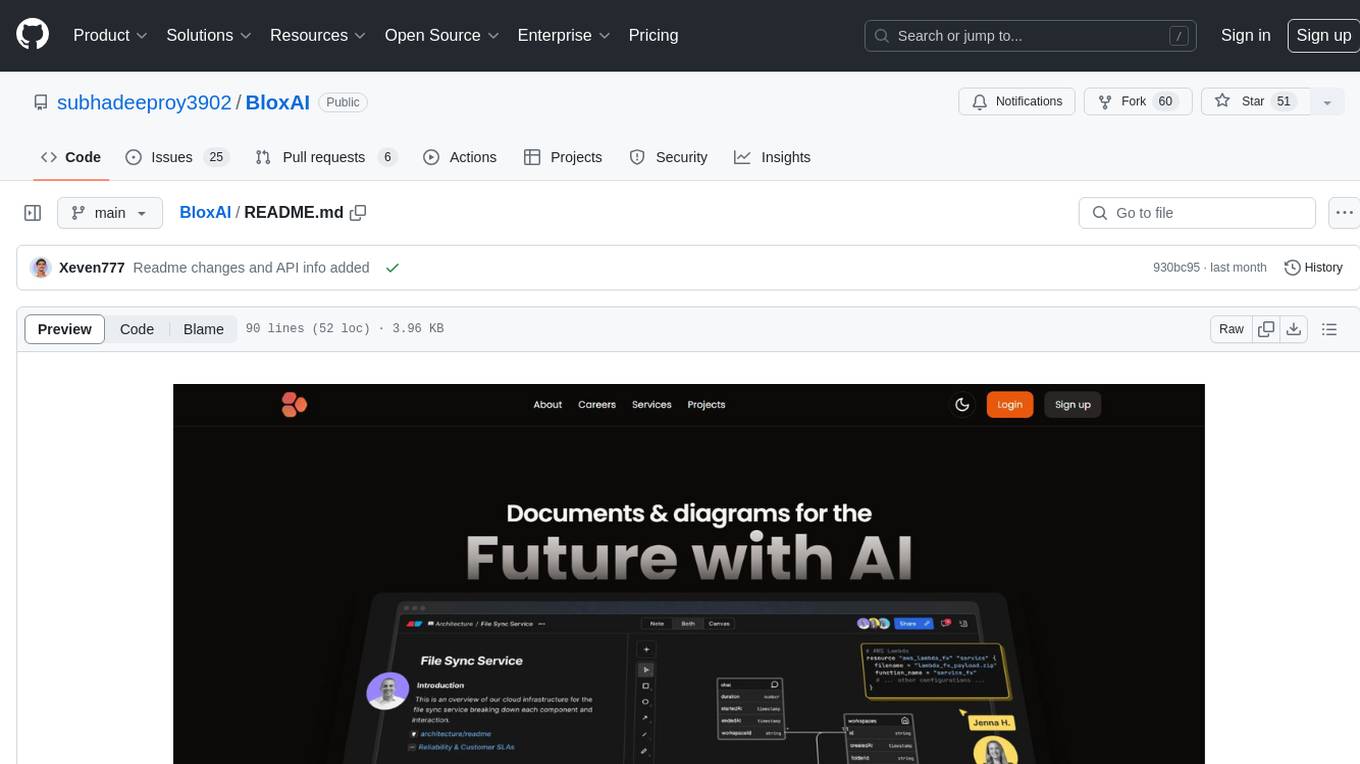
BloxAI
Blox AI is a platform that allows users to effortlessly create flowcharts and diagrams, collaborate with teams, and receive explanations from the Google Gemini model. It offers rich text editing, versatile visualizations, secure workspaces, and limited files allotment. Users can install it as an app and use it for wireframes, mind maps, and algorithms. The platform is built using Next.Js, Typescript, ShadCN UI, TailwindCSS, Convex, Kinde, EditorJS, and Excalidraw.
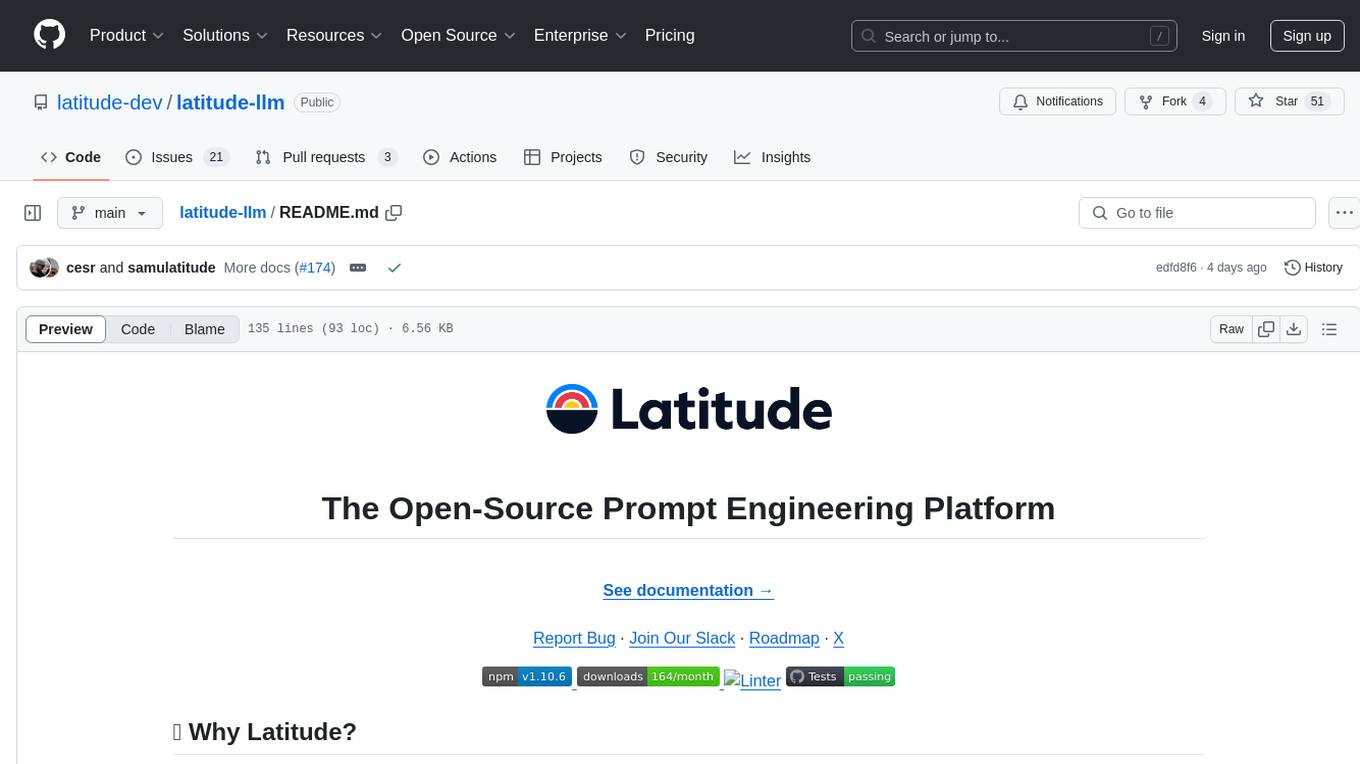
latitude-llm
Latitude is an open-source prompt engineering platform that helps developers and product teams build AI features with confidence. It simplifies prompt management, aids in testing AI responses, and provides detailed analytics on request performance. Latitude offers collaborative prompt management, support for advanced features, version control, API and SDKs for integration, observability, evaluations in batch or real-time, and is community-driven. It can be deployed on Latitude Cloud for a managed solution or self-hosted for control and customization.
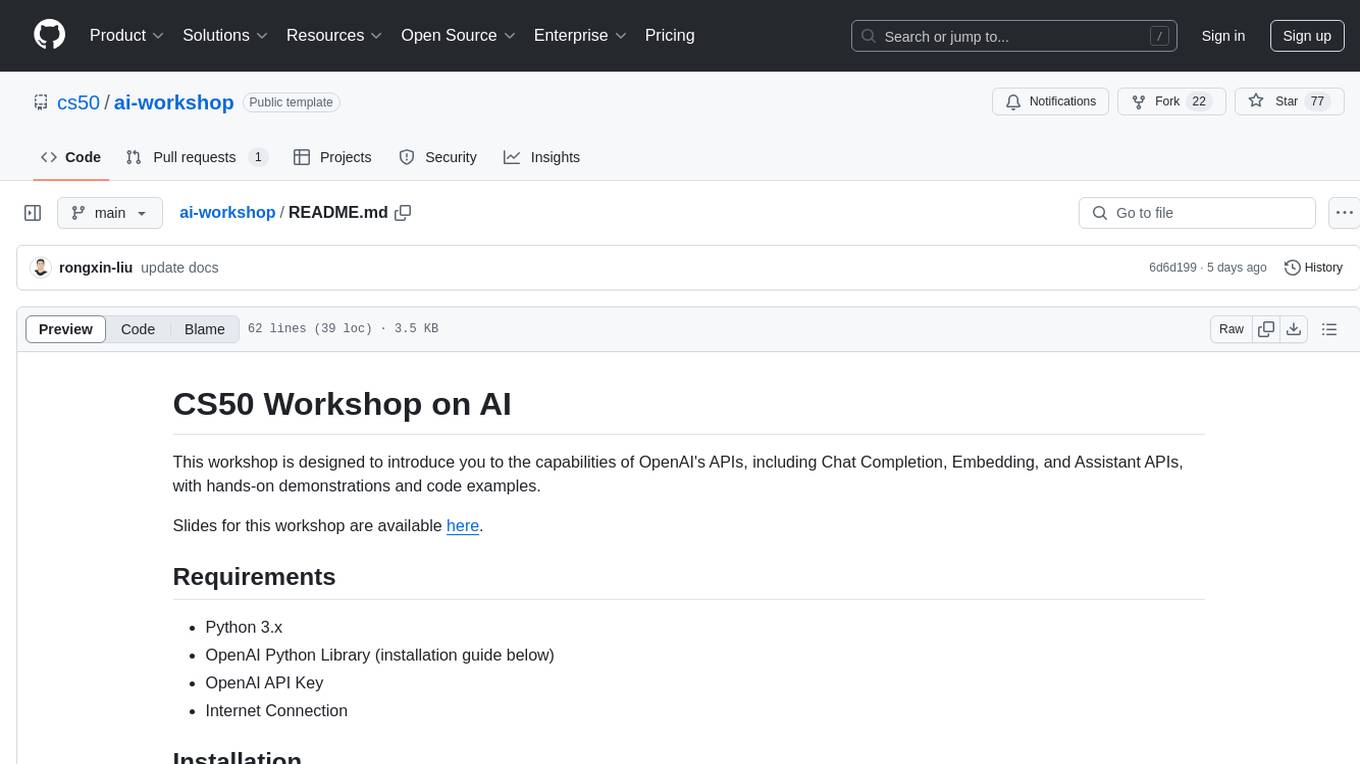
ai-workshop
The AI Workshop repository provides a comprehensive guide to utilizing OpenAI's APIs, including Chat Completion, Embedding, and Assistant APIs. It offers hands-on demonstrations and code examples to help users understand the capabilities of these APIs. The workshop covers topics such as creating interactive chatbots, performing semantic search using text embeddings, and building custom assistants with specific data and context. Users can enhance their understanding of AI applications in education, research, and other domains through practical examples and usage notes.
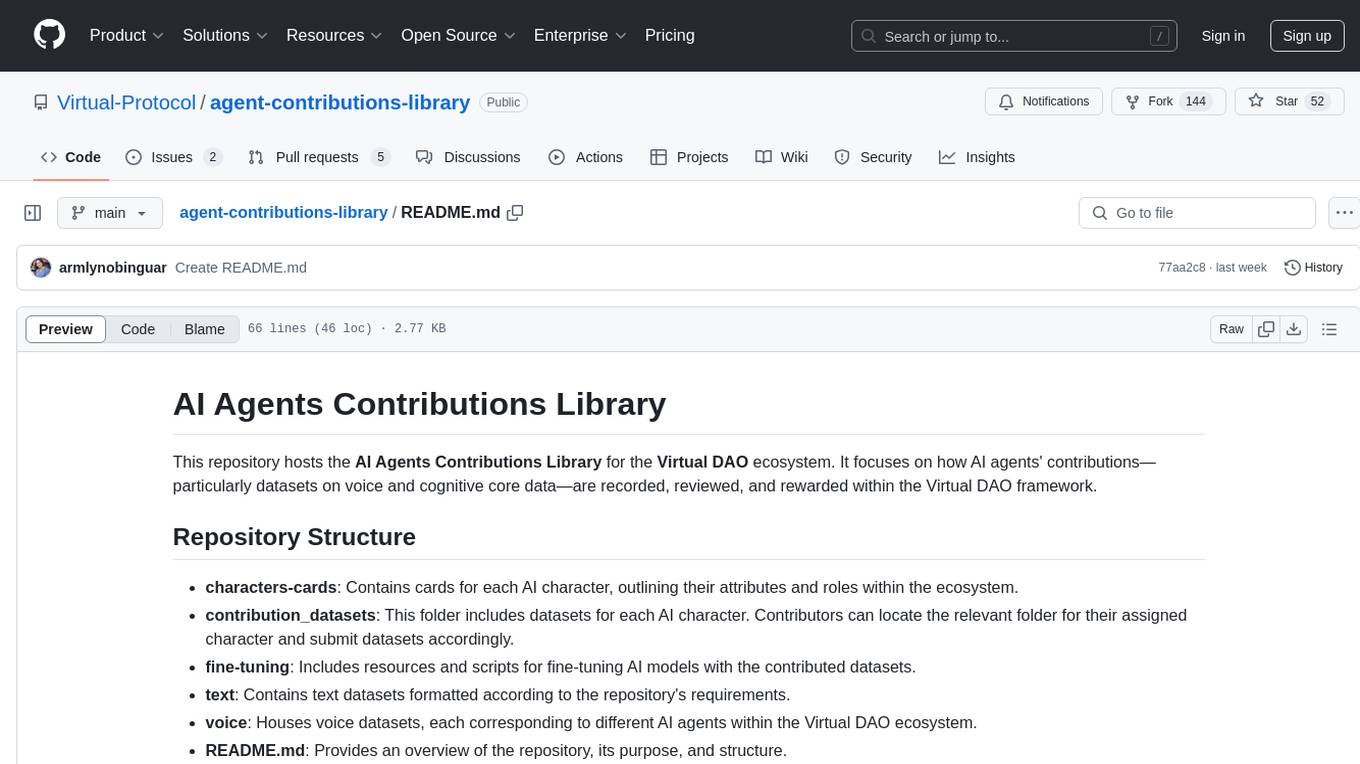
agent-contributions-library
The AI Agents Contributions Library is a repository dedicated to managing datasets on voice and cognitive core data for AI agents within the Virtual DAO ecosystem. It provides a structured framework for recording, reviewing, and rewarding contributions from contributors. The repository includes folders for character cards, contribution datasets, fine-tuning resources, text datasets, and voice datasets. Contributors can submit datasets following specific guidelines and formats, and the Virtual DAO team reviews and integrates approved datasets to enhance AI agents' capabilities.
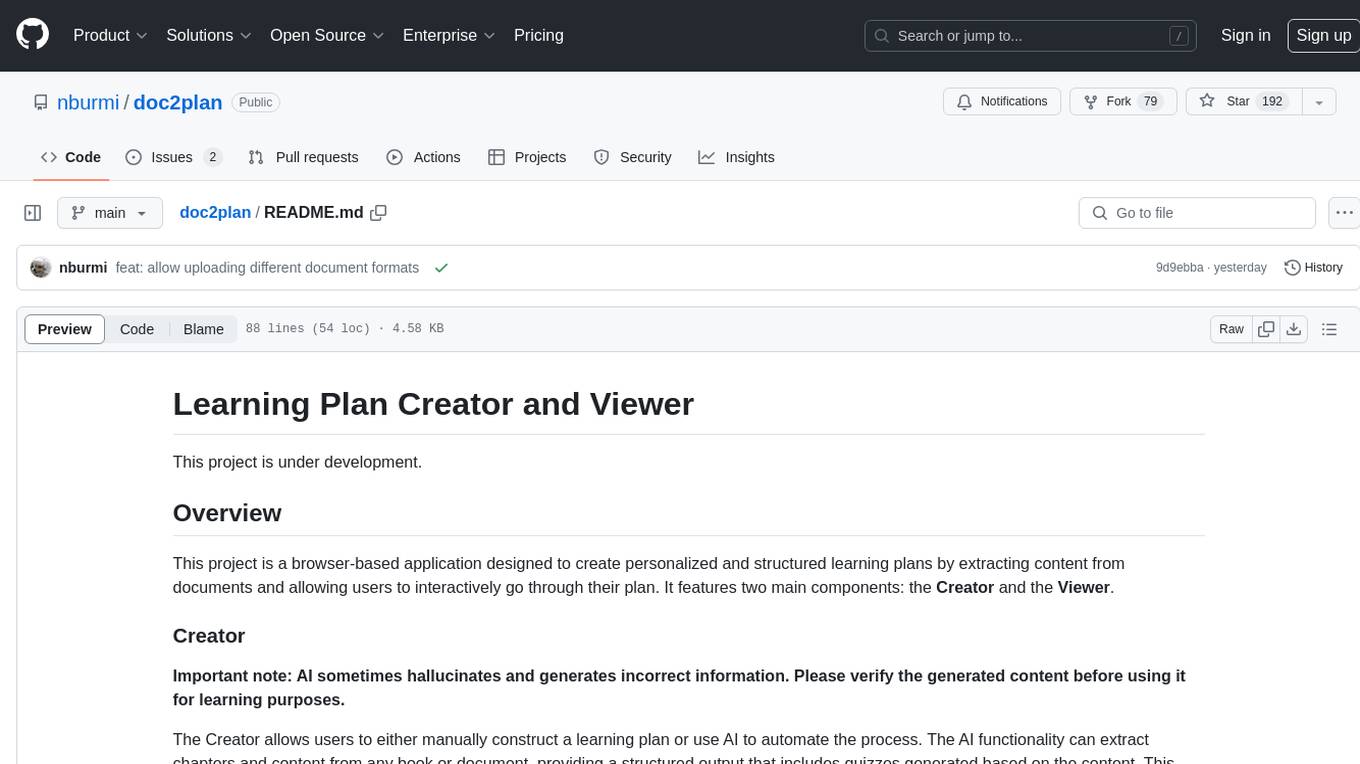
doc2plan
doc2plan is a browser-based application that helps users create personalized learning plans by extracting content from documents. It features a Creator for manual or AI-assisted plan construction and a Viewer for interactive plan navigation. Users can extract chapters, key topics, generate quizzes, and track progress. The application includes AI-driven content extraction, quiz generation, progress tracking, plan import/export, assistant management, customizable settings, viewer chat with text-to-speech and speech-to-text support, and integration with various Retrieval-Augmented Generation (RAG) models. It aims to simplify the creation of comprehensive learning modules tailored to individual needs.
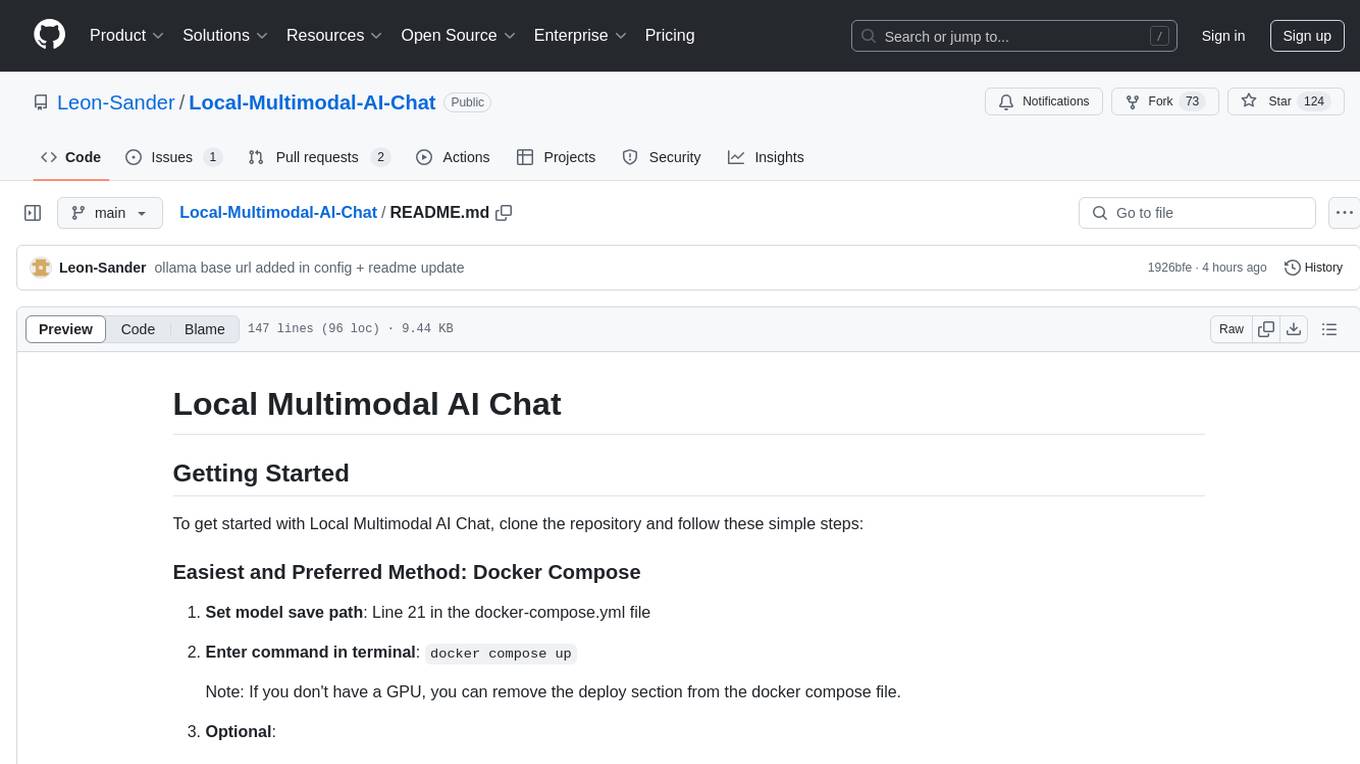
Local-Multimodal-AI-Chat
Local Multimodal AI Chat is a multimodal chat application that integrates various AI models to manage audio, images, and PDFs seamlessly within a single interface. It offers local model processing with Ollama for data privacy, integration with OpenAI API for broader AI capabilities, audio chatting with Whisper AI for accurate voice interpretation, and PDF chatting with Chroma DB for efficient PDF interactions. The application is designed for AI enthusiasts and developers seeking a comprehensive solution for multimodal AI technologies.
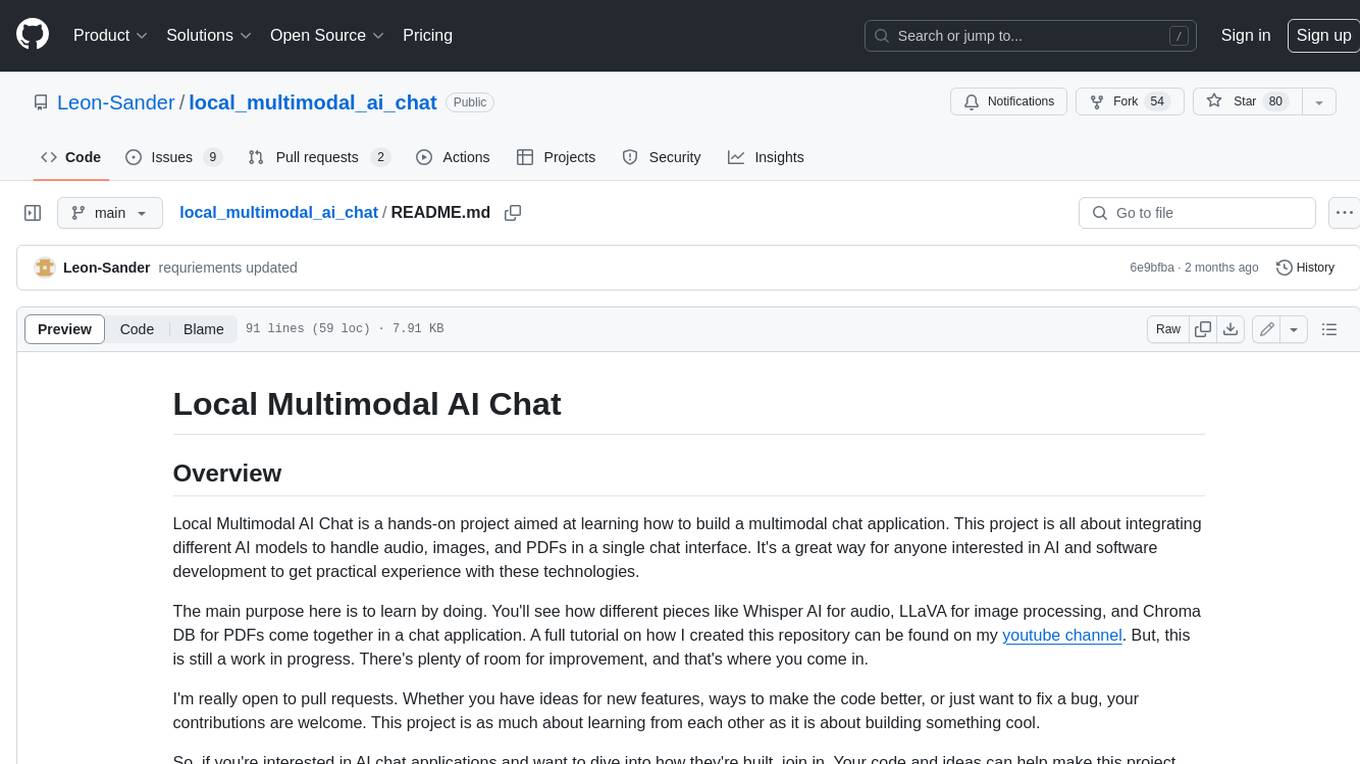
local_multimodal_ai_chat
Local Multimodal AI Chat is a hands-on project that teaches you how to build a multimodal chat application. It integrates different AI models to handle audio, images, and PDFs in a single chat interface. This project is perfect for anyone interested in AI and software development who wants to gain practical experience with these technologies.
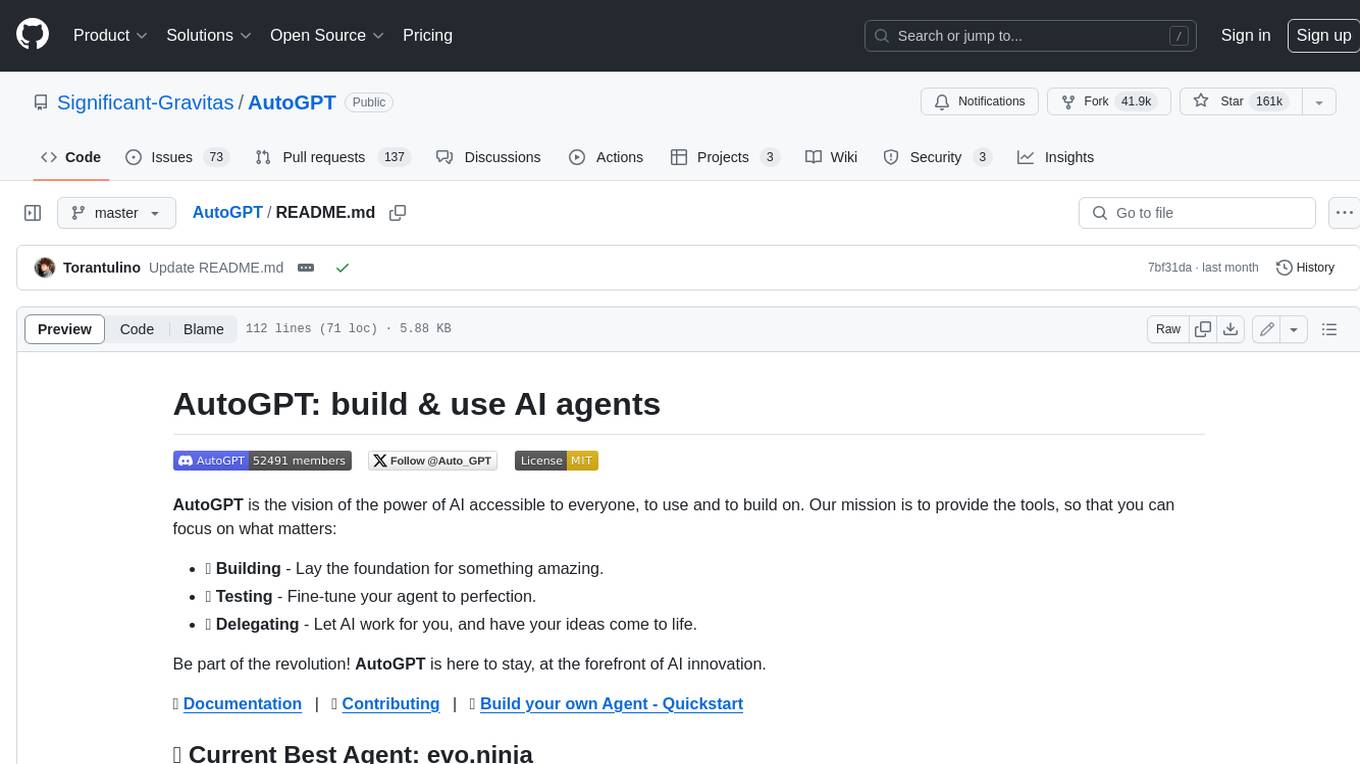
AutoGPT
AutoGPT is a revolutionary tool that empowers everyone to harness the power of AI. With AutoGPT, you can effortlessly build, test, and delegate tasks to AI agents, unlocking a world of possibilities. Our mission is to provide the tools you need to focus on what truly matters: innovation and creativity.
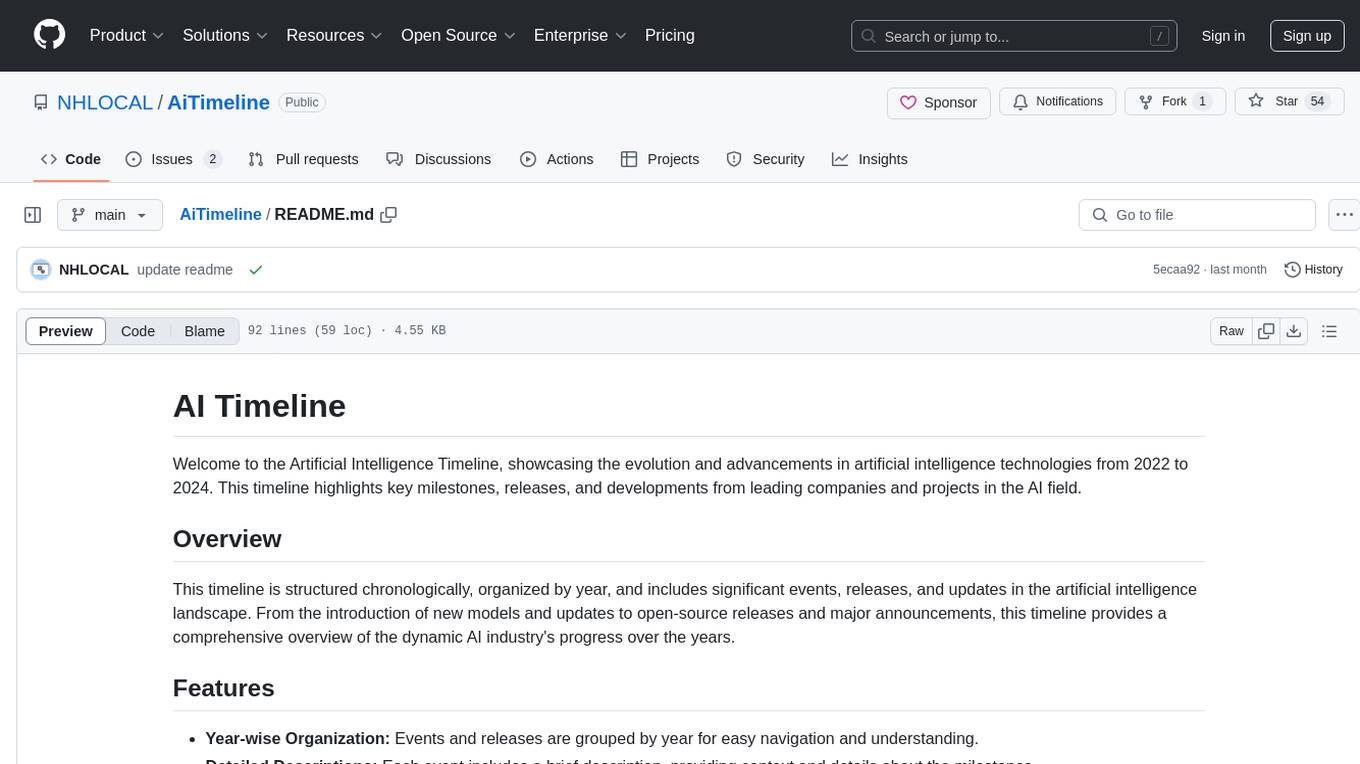
AiTimeline
AiTimeline is a comprehensive timeline showcasing the evolution and advancements in artificial intelligence technologies from 2022 to 2024. It provides a detailed overview of key milestones, releases, and developments in the AI industry, organized chronologically by year. The timeline offers a responsive design for seamless viewing on various devices and includes brief descriptions for each event, making it a valuable resource for researchers, enthusiasts, and anyone interested in tracking the progress of AI technologies.
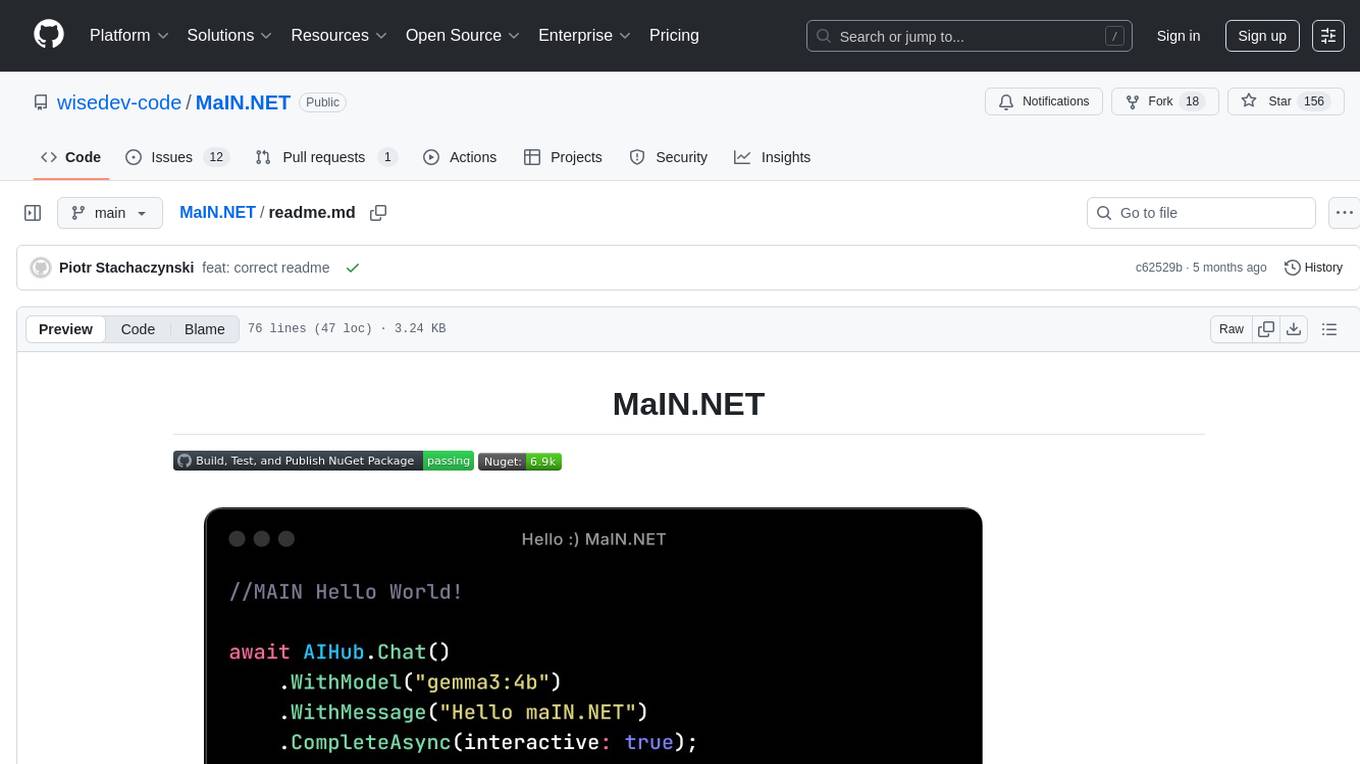
MaIN.NET
MaIN.NET (Modular Artificial Intelligence Network) is a versatile .NET package designed to streamline the integration of large language models (LLMs) into advanced AI workflows. It offers a flexible and robust foundation for developing chatbots, automating processes, and exploring innovative AI techniques. The package connects diverse AI methods into one unified ecosystem, empowering developers with a low-code philosophy to create powerful AI applications with ease.
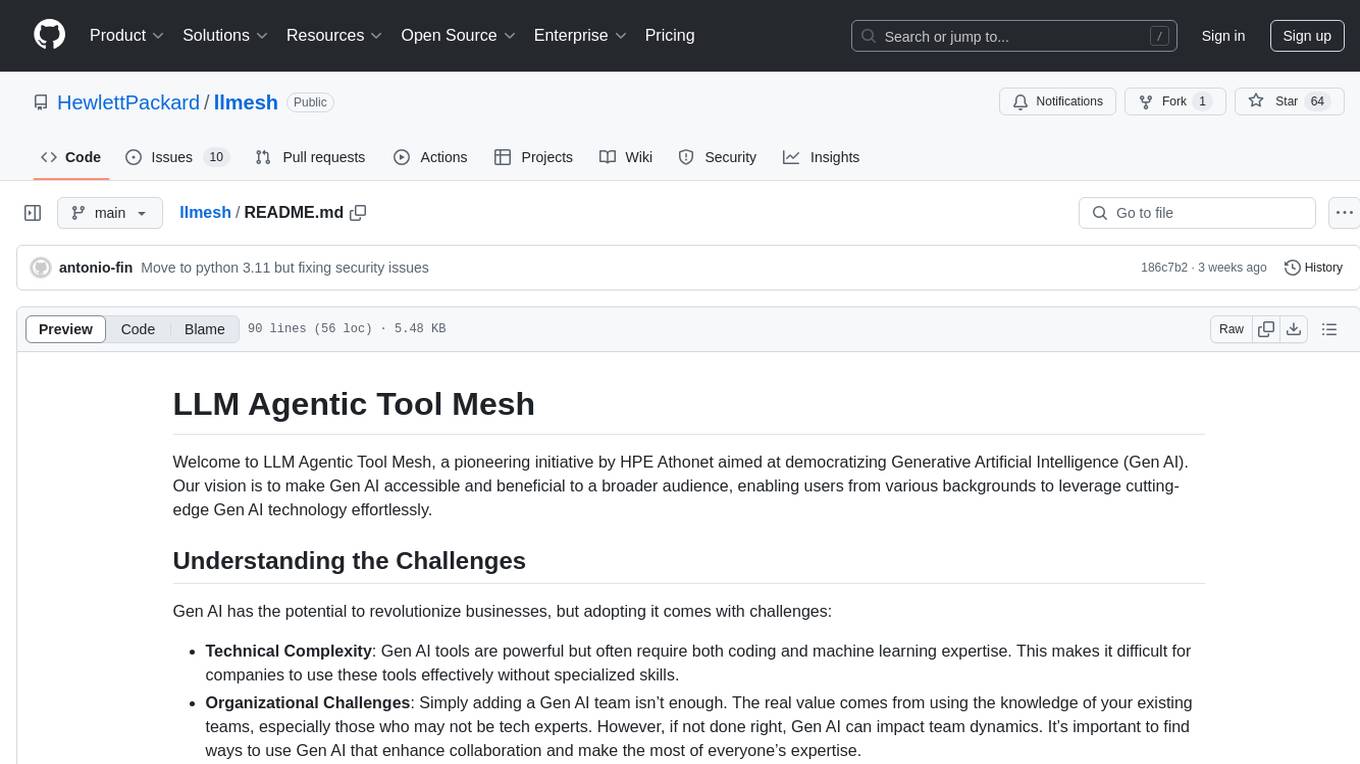
llmesh
LLM Agentic Tool Mesh is a platform by HPE Athonet that democratizes Generative Artificial Intelligence (Gen AI) by enabling users to create tools and web applications using Gen AI with Low or No Coding. The platform simplifies the integration process, focuses on key user needs, and abstracts complex libraries into easy-to-understand services. It empowers both technical and non-technical teams to develop tools related to their expertise and provides orchestration capabilities through an agentic Reasoning Engine based on Large Language Models (LLMs) to ensure seamless tool integration and enhance organizational functionality and efficiency.
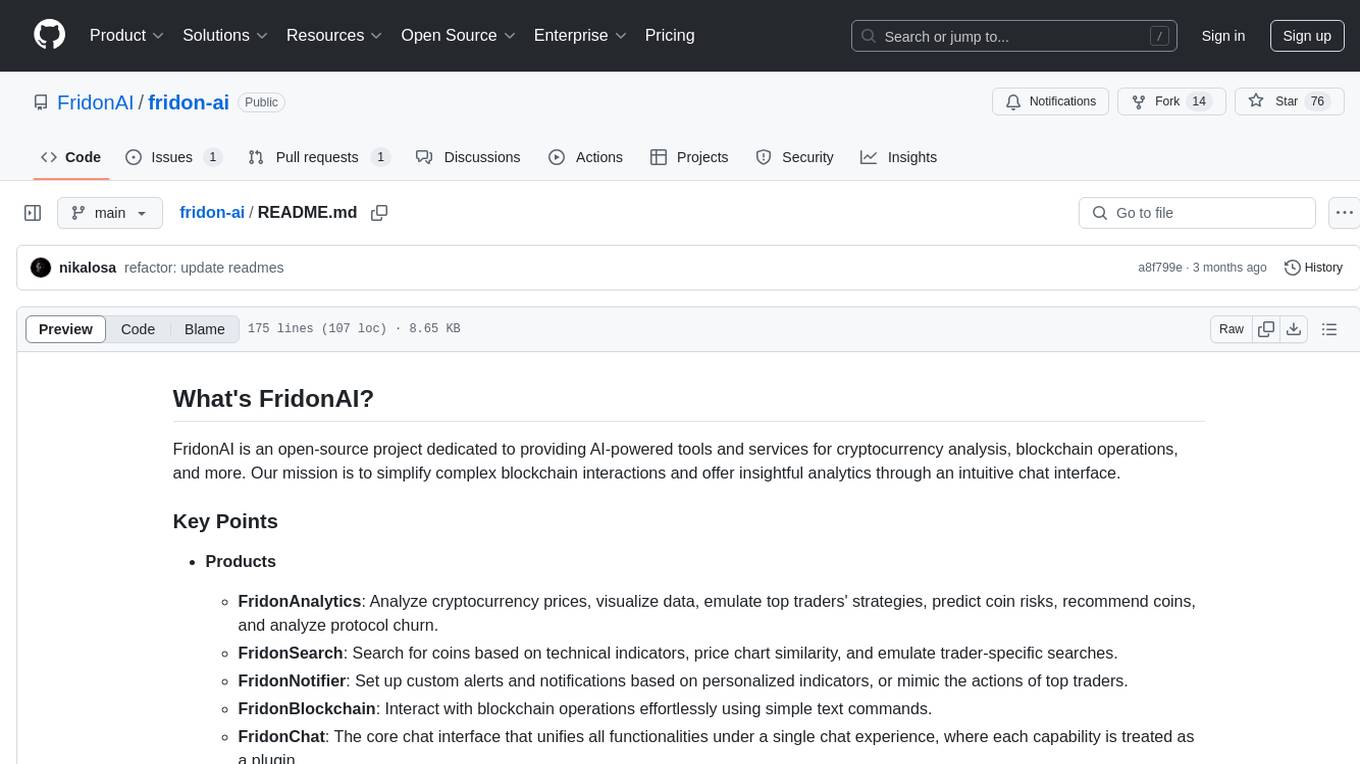
fridon-ai
FridonAI is an open-source project offering AI-powered tools for cryptocurrency analysis and blockchain operations. It includes modules like FridonAnalytics for price analysis, FridonSearch for technical indicators, FridonNotifier for custom alerts, FridonBlockchain for blockchain operations, and FridonChat as a unified chat interface. The platform empowers users to create custom AI chatbots, access crypto tools, and interact effortlessly through chat. The core functionality is modular, with plugins, tools, and utilities for easy extension and development. FridonAI implements a scoring system to assess user interactions and incentivize engagement. The application uses Redis extensively for communication and includes a Nest.js backend for system operations.
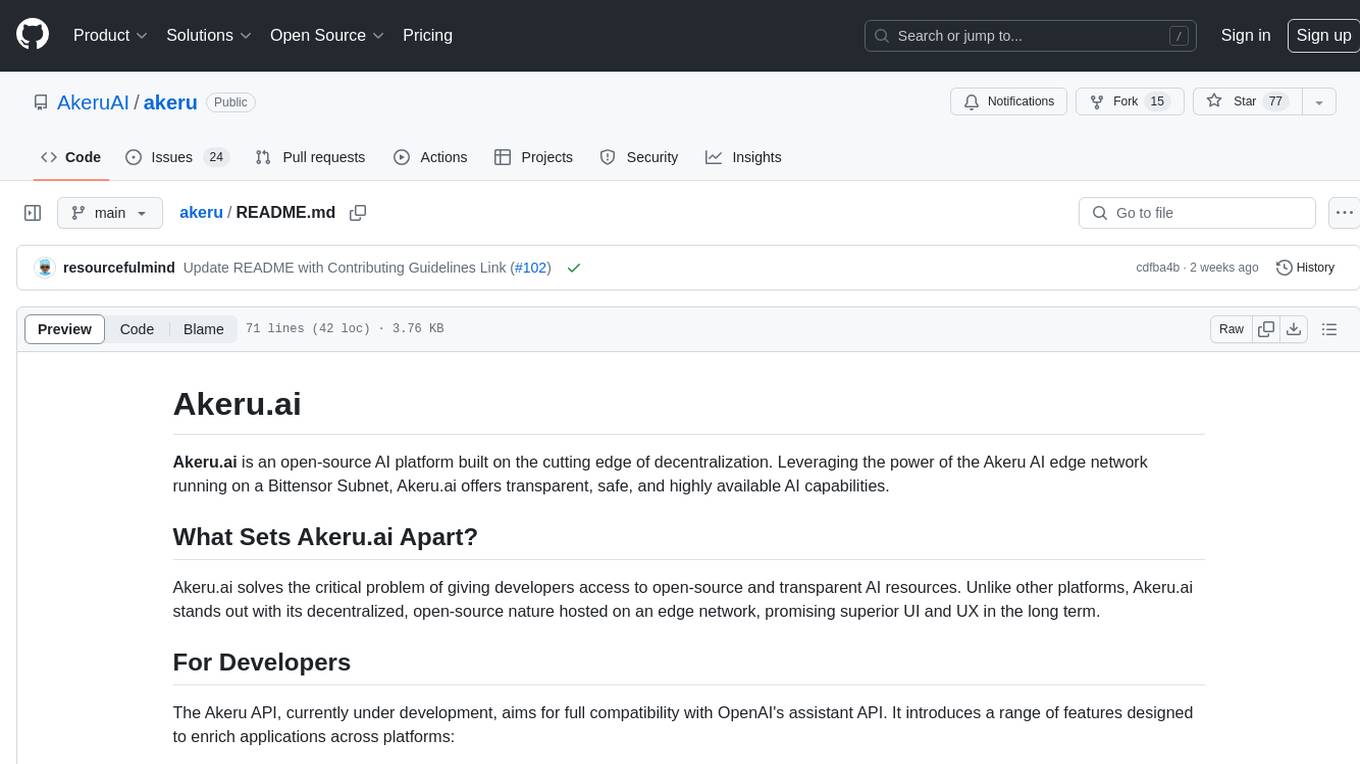
akeru
Akeru.ai is an open-source AI platform leveraging the power of decentralization. It offers transparent, safe, and highly available AI capabilities. The platform aims to give developers access to open-source and transparent AI resources through its decentralized nature hosted on an edge network. Akeru API introduces features like retrieval, function calling, conversation management, custom instructions, data input optimization, user privacy, testing and iteration, and comprehensive documentation. It is ideal for creating AI agents and enhancing web and mobile applications with advanced AI capabilities. The platform runs on a Bittensor Subnet design that aims to democratize AI technology and promote an equitable AI future. Akeru.ai embraces decentralization challenges to ensure a decentralized and equitable AI ecosystem with security features like watermarking and network pings. The API architecture integrates with technologies like Bun, Redis, and Elysia for a robust, scalable solution.

langwatch
LangWatch is a monitoring and analytics platform designed to track, visualize, and analyze interactions with Large Language Models (LLMs). It offers real-time telemetry to optimize LLM cost and latency, a user-friendly interface for deep insights into LLM behavior, user analytics for engagement metrics, detailed debugging capabilities, and guardrails to monitor LLM outputs for issues like PII leaks and toxic language. The platform supports OpenAI and LangChain integrations, simplifying the process of tracing LLM calls and generating API keys for usage. LangWatch also provides documentation for easy integration and self-hosting options for interested users.
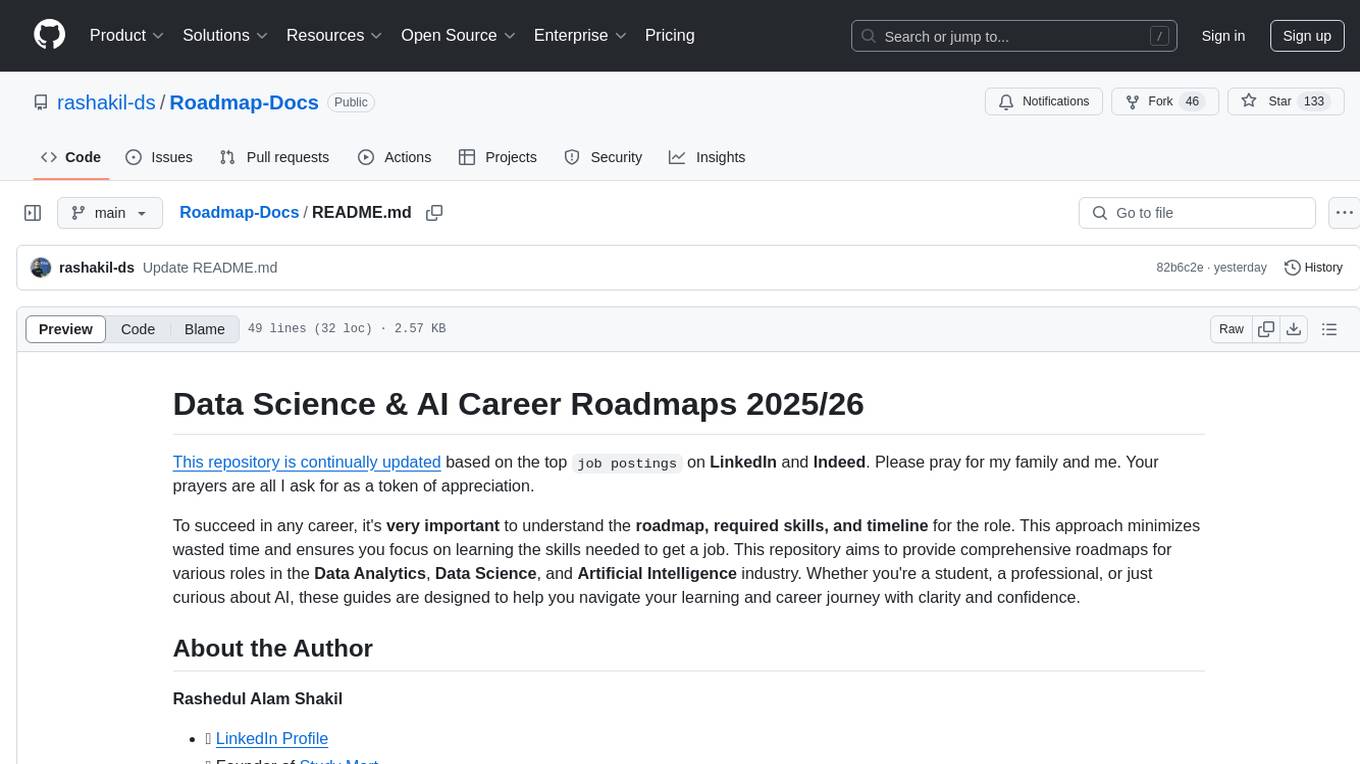
Roadmap-Docs
This repository provides comprehensive roadmaps for various roles in the Data Analytics, Data Science, and Artificial Intelligence industry. It aims to guide individuals, whether students or professionals, in understanding the required skills and timeline for different roles, helping them focus on learning the necessary skills to secure a job. The repository includes detailed guides for roles such as Data Analyst, Data Engineer, Data Scientist, AI Engineer, Computer Vision Engineer, Generative AI Engineer, Machine Learning Engineer, NLP Engineer, and Domain-Specific ML Topics for Researchers.
For similar tasks

product-manager-prompts
A treasure trove of Generative AI prompt engineering tailored for product managers and product owners. It provides prompts for completing tasks, exploring ideas, conducting research, facilitating communication, and jumpstarting templates. Join the community to enrich this collection with insights, prompts, synthetic data, and examples, making it an indispensable resource for product management.
For similar jobs

sweep
Sweep is an AI junior developer that turns bugs and feature requests into code changes. It automatically handles developer experience improvements like adding type hints and improving test coverage.

teams-ai
The Teams AI Library is a software development kit (SDK) that helps developers create bots that can interact with Teams and Microsoft 365 applications. It is built on top of the Bot Framework SDK and simplifies the process of developing bots that interact with Teams' artificial intelligence capabilities. The SDK is available for JavaScript/TypeScript, .NET, and Python.

ai-guide
This guide is dedicated to Large Language Models (LLMs) that you can run on your home computer. It assumes your PC is a lower-end, non-gaming setup.

classifai
Supercharge WordPress Content Workflows and Engagement with Artificial Intelligence. Tap into leading cloud-based services like OpenAI, Microsoft Azure AI, Google Gemini and IBM Watson to augment your WordPress-powered websites. Publish content faster while improving SEO performance and increasing audience engagement. ClassifAI integrates Artificial Intelligence and Machine Learning technologies to lighten your workload and eliminate tedious tasks, giving you more time to create original content that matters.

chatbot-ui
Chatbot UI is an open-source AI chat app that allows users to create and deploy their own AI chatbots. It is easy to use and can be customized to fit any need. Chatbot UI is perfect for businesses, developers, and anyone who wants to create a chatbot.

BricksLLM
BricksLLM is a cloud native AI gateway written in Go. Currently, it provides native support for OpenAI, Anthropic, Azure OpenAI and vLLM. BricksLLM aims to provide enterprise level infrastructure that can power any LLM production use cases. Here are some use cases for BricksLLM: * Set LLM usage limits for users on different pricing tiers * Track LLM usage on a per user and per organization basis * Block or redact requests containing PIIs * Improve LLM reliability with failovers, retries and caching * Distribute API keys with rate limits and cost limits for internal development/production use cases * Distribute API keys with rate limits and cost limits for students

uAgents
uAgents is a Python library developed by Fetch.ai that allows for the creation of autonomous AI agents. These agents can perform various tasks on a schedule or take action on various events. uAgents are easy to create and manage, and they are connected to a fast-growing network of other uAgents. They are also secure, with cryptographically secured messages and wallets.

griptape
Griptape is a modular Python framework for building AI-powered applications that securely connect to your enterprise data and APIs. It offers developers the ability to maintain control and flexibility at every step. Griptape's core components include Structures (Agents, Pipelines, and Workflows), Tasks, Tools, Memory (Conversation Memory, Task Memory, and Meta Memory), Drivers (Prompt and Embedding Drivers, Vector Store Drivers, Image Generation Drivers, Image Query Drivers, SQL Drivers, Web Scraper Drivers, and Conversation Memory Drivers), Engines (Query Engines, Extraction Engines, Summary Engines, Image Generation Engines, and Image Query Engines), and additional components (Rulesets, Loaders, Artifacts, Chunkers, and Tokenizers). Griptape enables developers to create AI-powered applications with ease and efficiency.